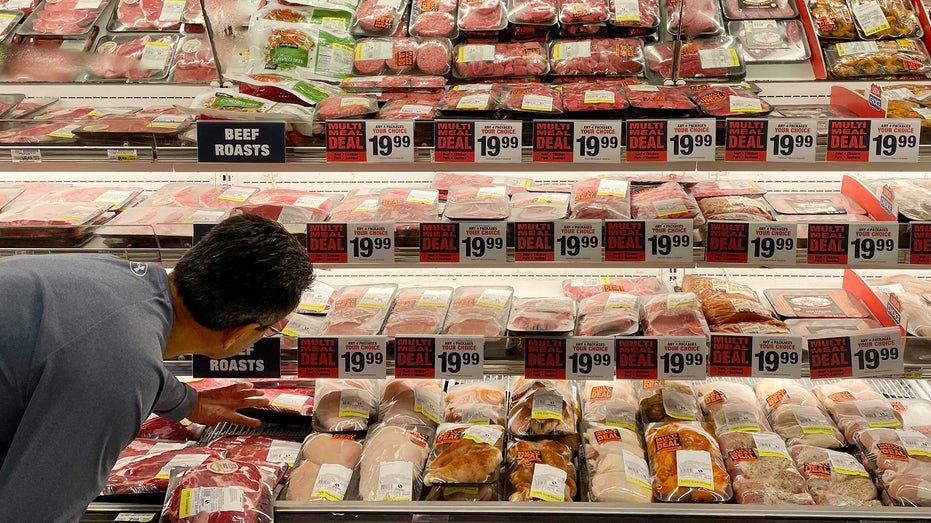February inflation report likely to show consumer prices remain elevated
Where should the Fed funds rate be to combat inflation?
Hoover Institution senior fellow John Taylor reacts to the Federal Reserve’s efforts to combat inflation on ‘Kudlow.’
A high-stakes inflation report due Tuesday is expected to show that price pressures within the economy remained strong last month, despite an aggressive interest-rate hike campaign by the Federal Reserve.
Economists expect the consumer price index, which measures a basket of goods, including gasoline, health care, groceries and rent, to show that monthly prices rose 0.4% in February, down slightly from an increase of 0.5% January. On an annual basis, inflation is projected to have climbed 6% at an annual rate, a decline from 6.4% the previous month and a peak of 9.1% in June.
When excluding the more volatile measurements of food and energy, prices are expected to climb by 0.4% or 5.5% annually, suggesting that underlying inflationary pressures remain strong.
FIRST REPUBLIC SHARES PLUNGE ON SVB CONTAGION FEARS
The report is the last before the Federal Reserve's next policy-setting meeting on March 21-22 and will have major implications for the U.S. central bank, which is tightening monetary policy at the fastest rate in decades as it tries to crush out-of-control inflation.
Officials have already approved eight straight rate increases, lifting the federal funds rate to a range of 4.5% to 4.75%, well into restrictive levels. In recent weeks, policymakers have indicated that rates may need to climb higher than previously anticipated in the face of hotter-than-expected economic data.
However, rate-hike expectations were thrown into uncertainty after the stunning implosion of Silicon Valley Bank on Friday roiled global markets and triggered fears of a broader financial meltdown.
The probability that the Fed pauses its rate-hike campaign next week rose to 28% on Monday, according to data from the CME Group's FedWatch tool, up from 0% just one day ago. About 71% of traders, meanwhile, are anticipating a typical quarter-point hike.
A man shops for meat at a Safeway grocery store in Annapolis, Maryland, on May 16, 2022. (Jim Watson / AFP via Getty Images / Getty Images) "Investors are struggling to gauge the direction of Fed policy with the banking industry struggles contrasted with the stubbornly high level of inflation," said Mark Hackett, Nationwide's chief of investment research. "It is unclear how the disruption in the banking system may impact that path." Many economists expect the Fed will continue to raise rates next week, albeit at a slower and more cautious pace than it would if not for the collapse of SVB – a key lender to tech startups and venture capital firms. That's in part because federal regulators stepped in on Sunday evening to shore up the banking system and backstop all deposits at SVB. "This is not like the credit crunch of the Great Financial Crisis," said Jeffrey Roach, chief economist at LPL Financial. "Therefore, investors should not expect the Fed to divert its focus on squelching inflation. The Fed will likely hike by another 25 basis points at the next meeting. However, the rising risks to the economy could likely influence the Fed to stop raising rates by the summertime." CLICK HERE TO READ MORE ON FOX BUSINESS The Fed is also watching other economic indicators, including job growth and consumer inflation expectations. In another welcoming sign for the central bank, there were some signs of rapid wage growth cooling in the February jobs report last week, although job growth remained solid. Source: Read Full Article

